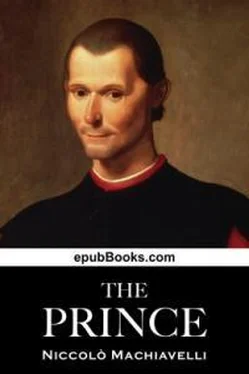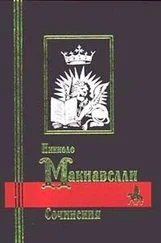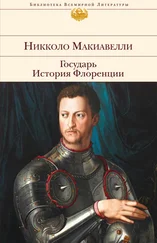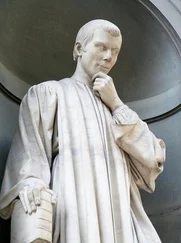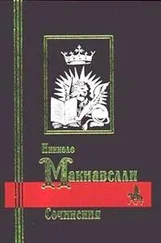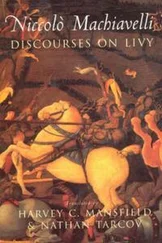But it is impossible to hold with such tranquillity states constituted like that of France. Hence arose those frequent rebellions against the Romans in Spain, France, and Greece, owing to the many principalities there were in these states, of which, as long as the memory of them endured, the Romans always held an insecure possession; but with the power and long continuance of the empire the memory of them passed away, and the Romans then became secure possessors. And when fighting afterwards amongst themselves, each one was able to attach to himself his own parts of the country, according to the authority he had assumed there; and the family of the former lord being exterminated, none other than the Romans were acknowledged.
When these things are remembered no one will marvel at the ease with which Alexander held the Empire of Asia, or at the difficulties which others have had to keep an acquisition, such as Pyrrhus and many more; this is not occasioned by the little or abundance of ability in the conqueror, but by the want of uniformity in the subject state.
Chapter V
Concerning the Way to Govern Cities or Principalities Which Lived Under Their Own Laws Before They Were Annexed
Whenever those states which have been acquired as stated have been accustomed to live under their own laws and in freedom, there are three courses for those who wish to hold them: the first is to ruin them, the next is to reside there in person, the third is to permit them to live under their own laws, drawing a tribute, and establishing within it an oligarchy which will keep it friendly to you. Because such a government, being created by the prince, knows that it cannot stand without his friendship and interest, and does it utmost to support him; and therefore he who would keep a city accustomed to freedom will hold it more easily by the means of its own citizens than in any other way.
There are, for example, the Spartans and the Romans. The Spartans held Athens and Thebes, establishing there an oligarchy, nevertheless they lost them. The Romans, in order to hold Capua, Carthage, and Numantia, dismantled them, and did not lose them. They wished to hold Greece as the Spartans held it, making it free and permitting its laws, and did not succeed. So to hold it they were compelled to dismantle many cities in the country, for in truth there is no safe way to retain them otherwise than by ruining them. And he who becomes master of a city accustomed to freedom and does not destroy it, may expect to be destroyed by it, for in rebellion it has always the watchword of liberty and its ancient privileges as a rallying point, which neither time nor benefits will ever cause it to forget. And whatever you may do or provide against, they never forget that name or their privileges unless they are disunited or dispersed, but at every chance they immediately rally to them, as Pisa after the hundred years she had been held in bondage by the Florentines.
But when cities or countries are accustomed to live under a prince, and his family is exterminated, they, being on the one hand accustomed to obey and on the other hand not having the old prince, cannot agree in making one from amongst themselves, and they do not know how to govern themselves. For this reason they are very slow to take up arms, and a prince can gain them to himself and secure them much more easily. But in republics there is more vitality, greater hatred, and more desire for vengeance, which will never permit them to allow the memory of their former liberty to rest; so that the safest way is to destroy them or to reside there.
Chapter VI
Concerning New Principalities Which Are Acquired by One's Own Arms and Ability
Let no one be surprised if, in speaking of entirely new principalities as I shall do, I adduce the highest examples both of prince and of state; because men, walking almost always in paths beaten by others, and following by imitation their deeds, are yet unable to keep entirely to the ways of others or attain to the power of those they imitate. A wise man ought always to follow the paths beaten by great men, and to imitate those who have been supreme, so that if his ability does not equal theirs, at least it will savour of it. Let him act like the clever archers who, designing to hit the mark which yet appears too far distant, and knowing the limits to which the strength of their bow attains, take aim much higher than the mark, not to reach by their strength or arrow to so great a height, but to be able with the aid of so high an aim to hit the mark they wish to reach.
I say, therefore, that in entirely new principalities, where there is a new prince, more or less difficulty is found in keeping them, accordingly as there is more or less ability in him who has acquired the state. Now, as the fact of becoming a prince from a private station presupposes either ability or fortune, it is clear that one or other of these things will mitigate in some degree many difficulties. Nevertheless, he who has relied least on fortune is established the strongest. Further, it facilitates matters when the prince, having no other state, is compelled to reside there in person.
But to come to those who, by their own ability and not through fortune, have risen to be princes, I say that Moses, Cyrus, Romulus, Theseus, and such like are the most excellent examples. And although one may not discuss Moses, he having been a mere executor of the will of God, yet he ought to be admired, if only for that favour which made him worthy to speak with God. But in considering Cyrus and others who have acquired or founded kingdoms, all will be found admirable; and if their particular deeds and conduct shall be considered, they will not be found inferior to those of Moses, although he had so great a preceptor. And in examining their actions and lives one cannot see that they owed anything to fortune beyond opportunity, which brought them the material to mould into the form which seemed best to them. Without that opportunity their powers of mind would have been extinguished, and without those powers the opportunity would have come in vain.
It was necessary, therefore, to Moses that he should find the people of Israel in Egypt enslaved and oppressed by the Egyptians, in order that they should be disposed to follow him so as to be delivered out of bondage. It was necessary that Romulus should not remain in Alba, and that he should be abandoned at his birth, in order that he should become King of Rome and founder of the fatherland. It was necessary that Cyrus should find the Persians discontented with the government of the Medes, and the Medes soft and effeminate through their long peace. Theseus could not have shown his ability had he not found the Athenians dispersed. These opportunities, therefore, made those men fortunate, and their high ability enabled them to recognize the opportunity whereby their country was ennobled and made famous.
Those who by valorous ways become princes, like these men, acquire a principality with difficulty, but they keep it with ease. The difficulties they have in acquiring it rise in part from the new rules and methods which they are forced to introduce to establish their government and its security. And it ought to be remembered that there is nothing more difficult to take in hand, more perilous to conduct, or more uncertain in its success, than to take the lead in the introduction of a new order of things, because the innovator has for enemies all those who have done well under the old conditions, and lukewarm defenders in those who may do well under the new. This coolness arises partly from fear of the opponents, who have the laws on their side, and partly from the incredulity of men, who do not readily believe in new things until they have had a long experience of them. Thus it happens that whenever those who are hostile have the opportunity to attack they do it like partisans, whilst the others defend lukewarmly, in such wise that the prince is endangered along with them.
Читать дальше
